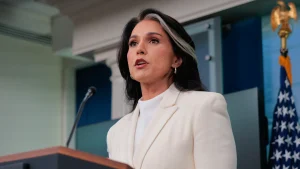Generation Z’s New Dating Economy: Where Love and Money Intersect
For today’s Generation Z, romance is increasingly entangled with financial reality. Nearly one-third of singles born between 1997 and 2012 admit they’ve accepted dates primarily for a free meal, according to a recent Intuit survey of 1,500 American adults. This statistic reflects a broader trend where economic considerations are reshaping dating norms. With 51% of Americans dating less due to financial concerns—rising to 58% among Gen Z—young adults are creating new definitions of what constitutes a desirable date. “For Gen Z, financial habits and ambition are becoming part of the new love language,” explains Ashleigh Ewald, a Georgia Tech public policy student. This perspective isn’t surprising when nearly half of Gen Z and millennials report feeling financially insecure, according to Deloitte research. As inflation and cost-of-living pressures mount, budget-friendly alternatives to traditional dating have gained popularity. Creative solutions like home-cooked meals or collaborative side hustles have become increasingly common. The survey indicates most Americans consider between $50 and $100 appropriate for a first date, highlighting the practical financial boundaries young people are establishing in their romantic lives.
The experiences of individuals like Katie Fites, a 22-year-old media professional from Jacksonville, Florida, illuminate this evolving landscape. While acknowledging the “free meal” phenomenon, Fites maintains standards about whom she’ll date: “A girl’s gotta eat, but I wouldn’t go out with just anyone for a free meal. The risk usually outweighs the reward.” Her approach balances practicality with personal values—she’s comfortable splitting costs or occasionally covering drinks but expects genuine effort and direction from potential partners. “If you can’t afford a $15 drink, don’t ask someone out,” she notes, emphasizing that financial ambition matters more than current income. This generation’s preference for low-pressure, affordable dates—coffee shops, beach walks, or casual drinks instead of formal dinners—reflects both economic necessity and changing social preferences. Jason Lee, founder of dating app LoveTrack, confirms this trend, noting that budget-conscious activities like scavenger hunts, picnics, and at-home movie nights have become among the most popular date options on his platform. Licensed therapist Allison Guilbault observes that for her Gen Z clients in New York City, splitting costs has become standard practice rather than an awkward exception.
Money often functions as the “third wheel” in modern relationships, with financial compatibility becoming a decisive factor in romantic success. The Intuit survey reveals that one-third of Americans have ended relationships over financial issues, while a striking 44% of Gen Z daters say they would only consider partners who earn more than they do. Psychologist Sabrina Romanoff contextualizes this trend: “Historically, women tended to date men of equal or greater education or income.” What’s changed is the increasingly transactional nature of dating interactions. “In the past, a first date might have led to the hope of a future together or a potential relationship, whereas, now more cynical daters may have lower expectations, such as a free dinner or free drink.” This isn’t entirely new—Guilbault recalls similar dynamics from the early 2000s “Sex and the City” era—but economic pressures have amplified these considerations for today’s young adults. The preference for financial responsibility appears mutual, as a Hily dating app survey found that substantial majorities of both women (57%) and men (63%) would stop seeing someone who mismanages money, with roughly a third of both genders finding frugality actively attractive.
The financial independence once viewed as a later milestone in relationships has become a foundational expectation for Gen Z couples. More than half maintain separate financial accounts even in committed relationships, preferring personal autonomy over joint financial management. Unlike previous generations who might have avoided direct discussions about money, young couples today approach the “money talk” with remarkable candor. Gen Z money expert Taylor Price explains this phenomenon: “We’re asking the salary question when we get exclusive because we’ve learned that love doesn’t pay the rent.” This transparency reflects a generation that has witnessed economic instability firsthand and developed pragmatic responses to financial uncertainty. Rather than viewing this approach as calculating or unromantic, many young adults see financial compatibility as an essential component of relationship sustainability—as important as emotional connection or shared values.
For Generation Z, financial considerations in dating aren’t merely about immediate gratification or materialism, but rather about building relationships compatible with economic realities they cannot ignore. Having come of age during significant economic disruptions—from the aftermath of the 2008 recession to the pandemic economy—their approach to dating reflects adaptations to these challenges. “Money has always mattered in relationships, but for Gen Z, it’s been front and center from day one,” notes Taylor Price. “We’re the generation that graduated into a pandemic economy, watched inflation eat our paychecks, and realized our parents’ financial playbook doesn’t work anymore.” This economic awareness doesn’t necessarily mean romantic cynicism. Instead, many young adults are finding creative ways to connect meaningfully while acknowledging financial constraints. Low-cost dates focused on quality time and shared experiences—rather than expensive outings—can actually foster deeper connections. By establishing transparent financial expectations early, many hope to build relationships with stronger foundations for long-term success.
The intersection of romance and economics for Generation Z reveals a generation balancing practical concerns with genuine desires for connection. Their approach to dating—characterized by budget consciousness, financial transparency, and redefined expectations—represents a rational response to the economic landscape they inhabit rather than a rejection of romance itself. “A free meal isn’t just about the food,” Price observes. “It’s about one less transaction on a card that’s already running on high tabs.” As inflation continues and financial pressures mount, these trends may intensify further. However, there’s also evidence that prioritizing financial compatibility could ultimately lead to more sustainable relationships. By addressing money matters openly from the beginning, young couples may avoid the financial conflicts that frequently contribute to relationship breakdown. While some may view this pragmatic approach as unromantic, it may ultimately enable more authentic connections based on shared values and realistic expectations. For Generation Z, the modern dating economy isn’t about putting a price on love—it’s about making sure love can thrive within economic reality.















